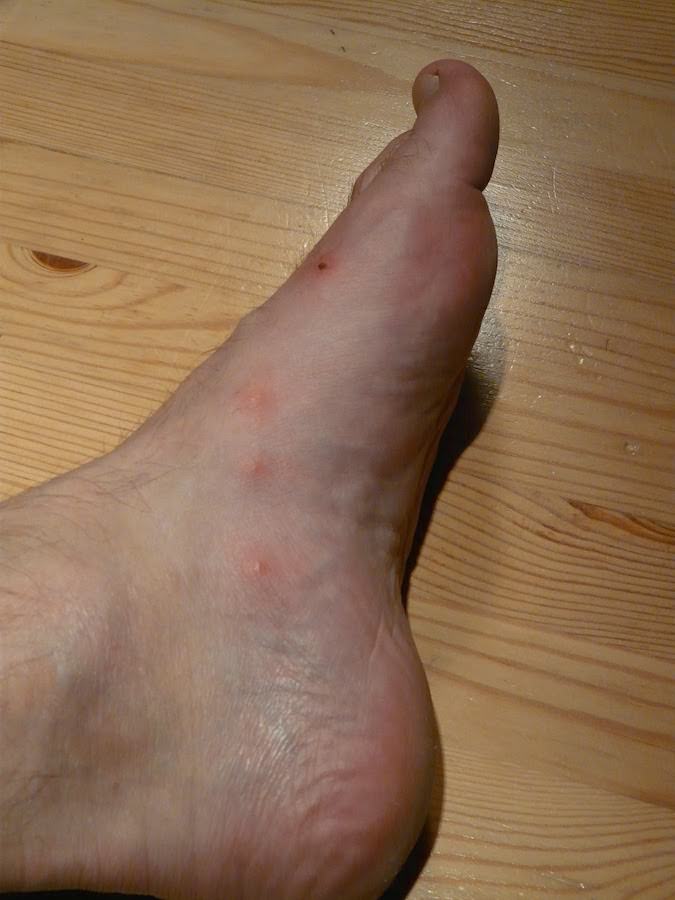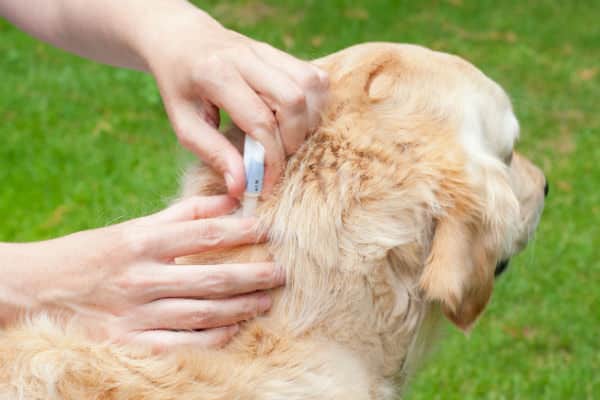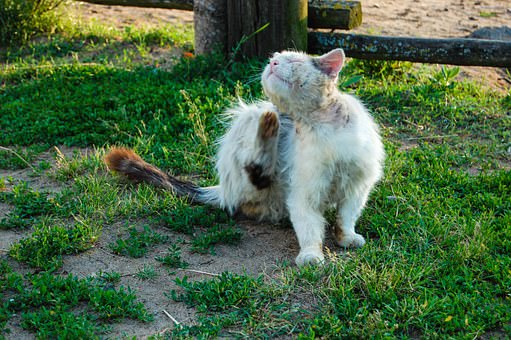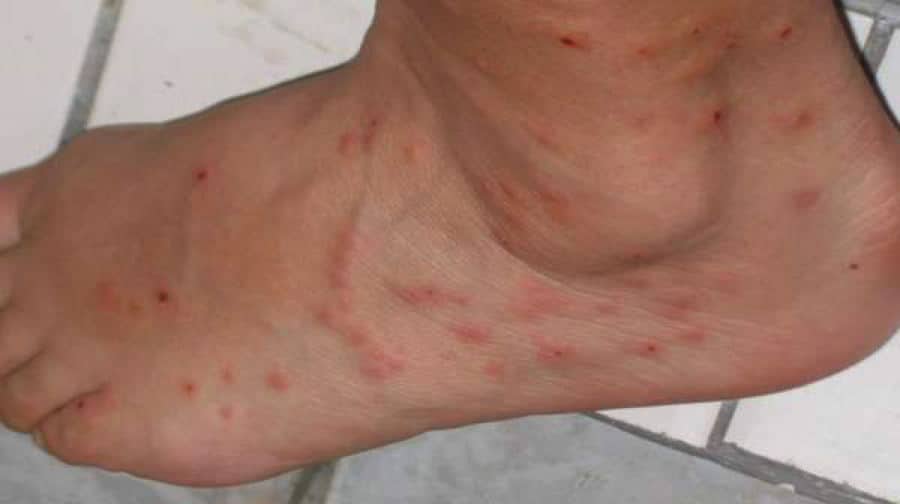Best Flea Powder for Dogs and Cats
There are numerous medications on the market for killing and repelling fleas. They come in different forms and contain varying active ingredients. Flea powder is one of many possible options you have in the event of your home or pet become infested.
I will investigate the potential safety concerns when it comes to using flea powder. I have also reviewed three of the top flea powders on the market. You will discover whether these powders are effective or not, and what precautions you should take when using them on your pet and in your home.
What is Flea Powder?
Fleas are irritating, blood-sucking pests that can be difficult to get rid of. Aside from transmitting diseases to your furry companion, they can also cause skin problems. Certain species of fleas can bite humans as well as animals.
This is why there are hundreds of different products on the market to protect your pet from fleas and treat infestations. There is a wide range of choices: some are chemical, others are all-natural. Some medications can only be prescribed by your vet. You also have a lot of options when it comes to the method of administering the remedy.
Flea powder is one of many types of flea treatment. As the name implies, it comes in the form of a powder. Certain powders are manufactured to be used in the animal’s environment as well as on your pet. After all, getting rid of the fleas on your cat or dog is only half the battle. Fleas in the early stages of development, such as eggs, cocoons, and larvae can be hiding in your home.
In the past, flea powders were the cornerstones of flea prevention along with sprays. With the advent of spot-on flea treatments, the role of flea powder has changed. They are now primarily used for controlling the flea population inside your home. The majority of insecticides in most chemical flea powders are neurotoxins.
Neurotoxins are poisons that attack the nervous system. Mainstay ingredients of flea powders include pyrethrins, etofenprox, and tetrachlorvinphos. Certain products contain the chemical, s-methoprene. This compound can help to reduce egg production in fleas.
Tetrachlorvinphos is another neurotoxic insecticide found in some flea powders. However, there have been concerns about how safe it is to use. There is some evidence that inhaling vapors from powders containing this chemical can be toxic to humans.
Flea powders can be made from natural ingredients too. Insecticide can be made from naturally occurring minerals, essential plant oils, seeds or spices. Diatomaceous earth, made from fossilized diatoms (a type of algae) is one such example. It can kill fleas and other insects by dehydrating them.
Pyrethrins are a powerful type of pesticide derived from chrysanthemum flowers. They are a common component of flea powders. A study researched the effects of a pyrethrin-based spray on cats and dogs. The results showed it is potent enough to successfully reduce fleas on both pets and their homes.
Boric acid is another natural insecticide. It is derived from boron, a mineral that is a micronutrient essential for the health of plants, animals and humans. Boric acid is a capable weapon against fleas. It degrades the tough exoskeletons of adults, without which they cannot survive. If sprinkled in your home, any flea larvae will ingest the crystals and die.
Best Flea Powder
There are quite a few factors that contribute towards choosing the right flea powder. The species and age of your pet, as well as your preferences, all come into play. Some flea powders are inappropriate for puppies and kittens. Others are designed only for use on the environment infested with fleas and should not be used on your pet.
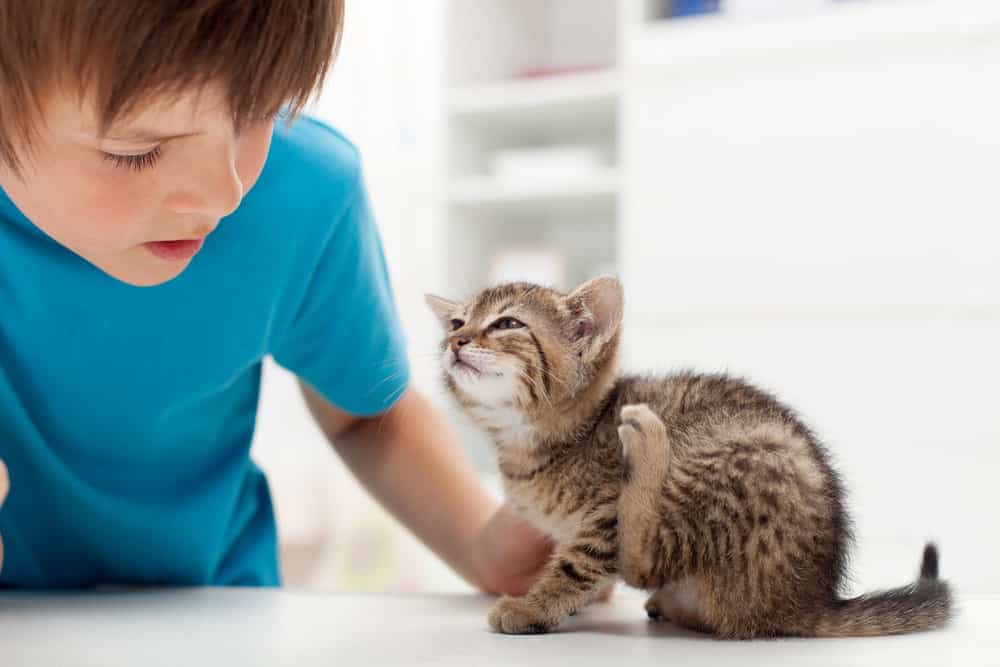
You may want a flea powder with a certain type of active ingredient. If you have children in your home, you should look for a product that is non-toxic and child-safe. I have reviewed three of the top flea powders available on the market. You will learn about the ingredients, uses, and benefits of each one.
Pet Fleas Are History – 100% Natural Powder
Pet Fleas Are History by Pest Peeve is a flea powder using all natural ingredients. It contains diatomaceous earth, yarrow flower powder, and neem leaf powder. This product is ecologically friendly and safe for use on both cats and dogs. It can also be used throughout your home to kill fleas.
Flea bites can cause raw, sore patches on your pet’s skin. Some pets develop flea-allergic dermatitis (FAD), an allergic reaction to flea bites. This flea powder is not an irritant, meaning it will not be painful to apply on bitten skin.
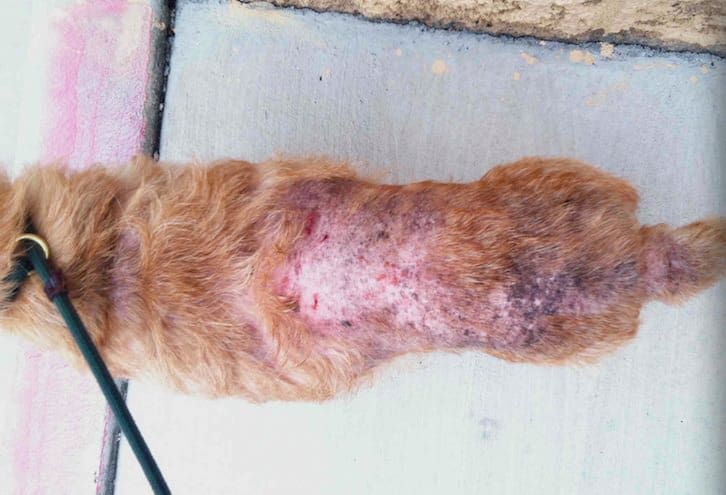
Benefits
Diatomaceous earth is a formidable insecticide. Most insects (fleas included) have a protective layer of wax on their exoskeletons. This powder rapidly absorbs these waxes, without which the flea cannot survive. Yarrow flowers have a history of being used as an insect repellant. A study on neem extract revealed that it reduced fleas on both cats and dogs over a period of 20 days.
The neem plant also has medicinal properties. It has been used to treat skin disorders as well as inflammation. Neem leaf powder could help to soothe irritated skin on your cat or dog where the fleas have bitten. It also possesses antibacterial and antiviral properties, which is useful, as fleas can carry nasty diseases.
The main benefit of this product is that it is poisonous only to fleas. It is safe to use if you have children in your home and is not toxic if your pet grooms itself after application. Additionally, it can be used on both cats and dogs. Many flea repellents are species-specific: even if a medication is not toxic to a dog, it may be deadly to a cat.
HDP Fleabusters RX for Fleas
HDP Fleabusters RX for fleas is a powder designed to kill fleas in and around your home. This fine-grained powder works against flea larvae. It contains orthoboric acid derived from the mineral boron. This powder is non-staining and can be safely used on a variety of surfaces.
Benefits
If you have a flea infestation, getting your pet flea-free is just the first step. Flea eggs, cocoons, and larvae in your home have to be eliminated too. Flea eggs are smooth, meaning they do not attach to the host animal’s fur. They can be found anywhere that your pet has been in your home.
Flea larvae are tiny: approximately 0.06 inches in length. They also tend to avoid light, so it can be hard to spot them. They gravitate towards dark enclosed places, such as cracks in the floor. At this stage in their development, the larvae can survive by living off debris, such as shed skin cells.
Orthoboric acid is an effectual weapon against flea larvae. When the larvae come in contact with this compound in powder or granule form, they dehydrate and die. Exposure to orthoboric acid for just a few days can successfully kill off 90 percent of flea larvae in carpeting.
Fleabusters’ powder has a neutral pH of seven. This means it will not damage your carpets. As the powder does not stain, you can use it on tiles, baseboards, and even upholstered furniture. The neutral pH has the added benefit of not repelling the flea larvae. Insects can often sense and avoid substances that are too acidic or alkaline.
Zodiac Flea and Tick Powder
Zodiac flea and tick powder is a chemical-based powder, which will kill adult fleas as well as ticks and lice. It is suitable for kittens, puppies, dogs, and cats. The active ingredients in this powder include pyrethrins and piperonyl butoxide.
Benefits
Pyrethrins are an ingredient in thousands of insecticides. As a neurotoxin, this compound attacks the nervous system of adult fleas, causing paralysis and death.
Piperonyl butoxide is a type of synergist. This is a substance that is not toxic on its own but helps to enhance the effect of the pyrethrins to better kill off fleas.
If you have a multi-pet household, getting rid of a flea infestation can be challenging. Most flea repellents and treatments are not suitable for inter-species use or pets of all ages. It can be extremely dangerous to your pet to apply a product that is not intended for the animal’s species, size, and age.
Even if you have cats and dogs of different ages, Zodiac Flea Powder is safe to use. However, take note that you should not use this flea powder on puppies and kittens below the age indicated on the package. This flea powder is also scented with a citrus fragrance and comes with a shaker top for easy application.
Is Flea Powder Safe for Cats and Dogs?
There are three main factors that contribute to how safe a flea powder is for your companion. These guidelines can be applied to almost any flea treatment. Firstly, the main ingredient or ingredients play a key role in safety. Certain pesticides commonly used in flea powders can be highly toxic if misused.
For example, permethrins are a synthetic type of pyrethrin. Cats are especially susceptible to toxic poisoning from this chemical. In the course of one year, 20 cats were taken to a veterinary hospital due to poisoning from flea products containing permethrins. However, most of these cases were determined to be caused by human error when applying the flea treatment.
The second safety issue has to do with you as a pet owner. For example, one of the most common causes of pyrethrin poisoning in pets is due to erroneous application. If you apply a product incorrectly (e.g. using a powder for adult dogs on a puppy) you are substantially increasing the risk of poisoning your pet.
The third and final safety concern to keep in mind is your pet as an individual. You need to make sure the vet examining your companion is aware of any health issues before recommending a flea treatment. If your pet has shown sensitivity to flea treatments in the past (e.g. skin irritation), tell your vet.
How to Use Flea Powder Effectively
First and foremost, you must keep in mind that flea powders—like any anti-flea product—can be toxic if mishandled. For this reason, it is important to explicitly follow the directions of the specific flea powder you are using. Always check with your vet before starting a new flea treatment on your pet.
Keep in mind that flea powders designed to kill fleas on your pet may not necessarily get rid of fleas in your home, and vice versa. The only surefire way to get rid of fleas is to tackle the entire infestation, meaning both your pet and your home. It is always best to combine flea powders with other measures to guarantee success.
Unfortunately, flea cocoons and eggs tend to resist most pesticides. Thoroughly vacuum any area where your pet has been, to get rid of as many of these as possible. Once you are finished, dispose of the vacuum bag immediately in a sealed container. You don’t want any fleas creeping out of your garbage can.
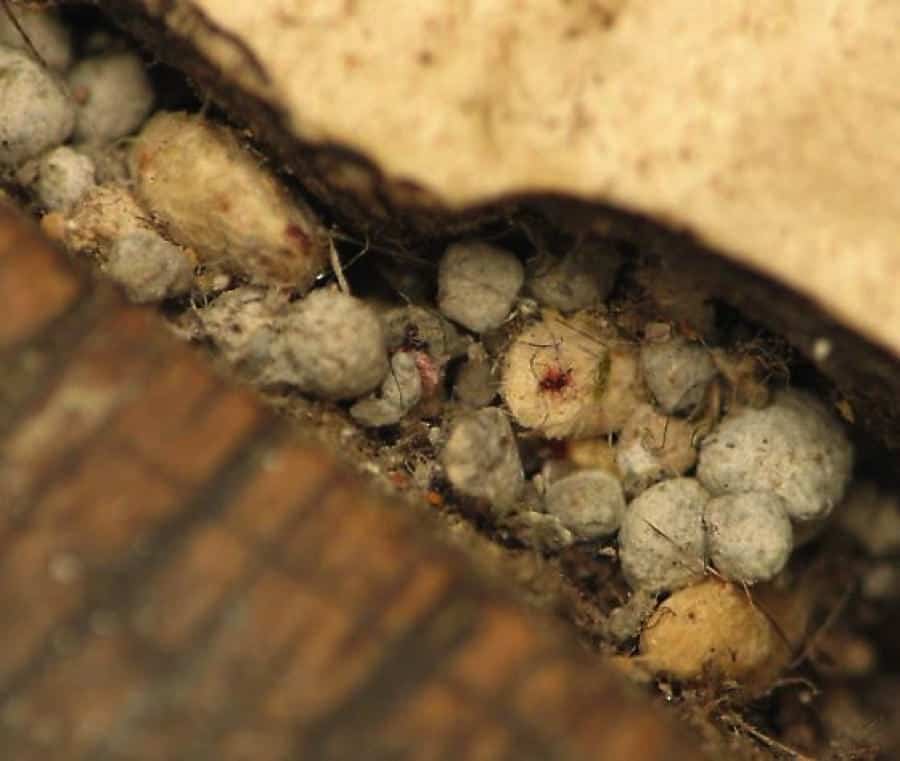
Wash your pet’s bedding and toys with hot, soapy water. Take precautions to make sure no fleas escape. If you wash any items by hand in a tub or bucket, flush the water away when you are done. Fleas are tough critters, and don’t drown easily: they can survive for up to 24 hours submerged in water. It’s not wise to dump water with fleas in it in your yard – this can restart the infestation.
When it comes to your home, you have to be thorough at all stages of fighting the flea infestation. Do not neglect any areas when you are vacuuming, washing and treating your floors, furniture and other items with flea powder. Always check the flea powder guidelines to ensure it is compatible with upholstery and other materials to avoid damage.
When it comes to your pet, flea powder is a hands-on type of treatment. Ensure that you wear gloves before applying the powder. Do not exceed the recommended amount of powder for your pet’s species and age. Unless your vet tells you otherwise, do not combine flea powder with other treatments (e.g. sprays or gels).
Once you have finished applying the powder, remove your gloves and wash your hands carefully with soap. Store and dispose of the product container exactly as indicated on the packaging.
Flea Powder Risks and Precautions
It almost goes without saying that you should limit your exposure to insecticides. When it comes to a powder that you are applying to a living animal, this can be tricky. As with pesticide sprays and vapors, there is a danger of accidental inhalation when using flea powder. Powder-based insecticides are intended for external use only, and should not be breathed in or ingested.
For this reason, it is safer to keep children out of the room when you use flea powder on your pet. If you accidentally inhale any flea powder, watch for symptoms of poisoning. Inhalation of pyrethrins can cause vomiting, diarrhea, and difficulty breathing. Seek immediate medical care if anyone in your home experiences any of these symptoms.
Similarly, if you are using flea powder to kill fleas in the environment, consider your family situation. If you have young children or infants who crawl around on the floor, you will need to purchase a powder that is child-safe. Some flea powders use boric acid as the main ingredient, which can be toxic to children if they ingest it. The same principle applies to your furry family members: purchase a powder that is pet-safe.
When applying flea powder to your pet, take great care to avoid powder or dust getting near your pet’s eyes, nose, and mouth. If you have multiple pets that you are using flea powder on, you may have to separate them for a period after application. This is to avoid potential poisoning through mutual grooming, especially if you are using a flea powder that is species, age, and size specific.
If you are using a flea powder on your pet for the first time, monitor your companion after application. If you notice any reactions such as vomiting, excessive drooling, respiratory issues or seizures, take immediate action. Wash the powder off your pet with soap and water and head to the nearest urgent veterinary care facility.
Summary
Flea powders can be an effective method of fighting fleas in your home. However, flea powders might not be a suitable option for all pets. If inhaled, these powders can intoxicate you or your pet. If you have an exuberant puppy, or a cat averse to being handled, it can be difficult to control the application of a powder.
This heightens the risk of powder going where it shouldn’t—such as in your pets nose, eyes or mouth. With flea powders intended for your home, it is of the utmost priority to make sure the flea powder you are using is not toxic to your pets or children. Always consult your veterinarian before using a flea powder on your pet.

